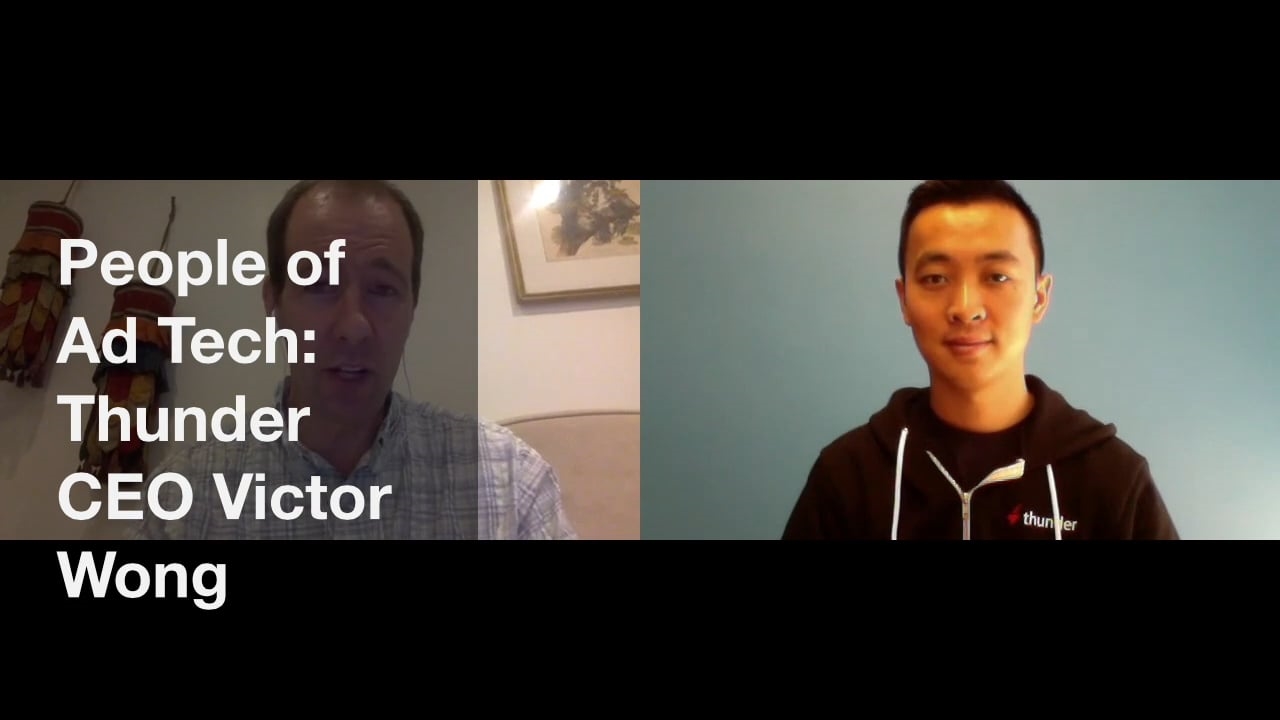Thunder’s Victor Wong Discusses The Future Of Ad Tech, Ad Standards
by
Melynda Fuller , January 24, 2018
Working with both the Coalition for Better Ads and the Advertising ID Consortium, Victor Wong, CEO of
creative management platform Thunder, understands the challenges facing today’s advertisers when connecting with consumers. He talked with Publishing Insider about how Google’s new ad standards could lead to a better user experience for customers.
PI: As the advertising industry mobilizes to take on the duopoly, what are the most important moves being made?
VW:
Competing walled gardens are embracing programmatic and people-based marketing to be competitive for digital ad dollars. They need to plug into the broader ad-tech ecosystem to allow marketers to bring their spend in the easiest way possible.
At the same time, their greatest asset is their unique cross-device view of consumers. They are figuring out how to leverage that for people-based marketing, in which brands seek to resolve multi-device advertising to give the individual the best experience and measurement.
These competing players are embracing multi-touch attribution. In the current world of last touch attribution, they are losing to Google and Facebook, which respectively had invested in ad serving (DoubleClick and Atlas) as a way of controlling how ad effectiveness is measured. Google often wins with last touch because of search, which happens after all ads are seen. It is often credited even if it didn’t inspire the demand, or the size of its ad network.

Facebook is increasingly winning with last touch, given how much time consumers spend on Facebook.
The competing players need to get more credit for their ads affecting outcome and embrace people-based marketing. That allows brands to connect all the dots between the walled garden and open web to a person’s transaction later in the process.
PI: How does your work with the Advertising ID Consortium
and the Coalition for Better Ads relate to Google’s latest moves and its ad presence overall?
VW:
What brands like Procter & Gamble and ad-tech companies like Google are trying to solve is consumer experience. Thunder joined the Advertising ID Consortium to support an Open ID. We can cut down the number of companies needing to pixel a user, which leads to slower ad loads and greater data protection issues. Both threaten the consumer experience.
Thunder also participates in the Coalition for Better Ads led by Google and P&G, given the better standards being put forth for how ads should interact with consumers.
The ad tech industry has essentially begun to realize it has to clean up or else risk consumer backlash. Google’s attempts to block ads, whether for malware, file size or ad format, are going to have a profound effect on finally enforcing the principals good for consumers. It should stop the race to the bottom among advertisers to captivate consumers by loading up pages with more pixels for tracking.
PI: What trends do you see for ad tech in 2018?
VW:
With so many competing digital channels, whether duopoly-controlled or challenged by new players like Snap, Pinterest and others, brands are demanding universal ad delivery and measurement. They need a way to scale ad operations and tracking to know true unique reach and de-duplicated conversions.
In 2018, brands are spreading money in more places than ever. Consumers are going to more places than ever. Brands will turn to ad tech to help them solve this problem.
MediaPost.com: Search Marketing Daily
(36)